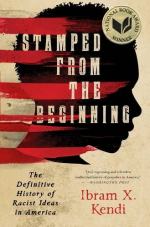|
This section contains 1,357 words (approx. 4 pages at 400 words per page) |

|
Summary
In the late 1820s, William Lloyd Garrison emerged as a passionate abolitionist advocate and activist. Garrison did not believe in colonization; he believed the assimilationist notion that "freedom and education would 'elevate [Blacks] to a proper rank in the scale of being'" (164). Unlike some of his contemporary abolitionists, Garrison advocated immediate rather than gradual emancipation. He advocated this immediate emancipation through his publication "The Liberator" which encouraged "free Blacks to challenge 'every law which infringes on your rights'" (168). Garrison believed in uplift suasion and emphasized "Black self-improvement to ward off racism" (169).
Racist ideas escalated in the 1830s with the birth of minstrel shows and newspapers articles that sensationalized and connected crime, poverty, and Blackness. The "vicious housing cycle" began with racist polities harming Black neighborhoods "generating racist ideas that caused people not to want to live next...
(read more from the Part Three: William Lloyd Garrison - Chapters 13-16 Summary)
|
This section contains 1,357 words (approx. 4 pages at 400 words per page) |

|




